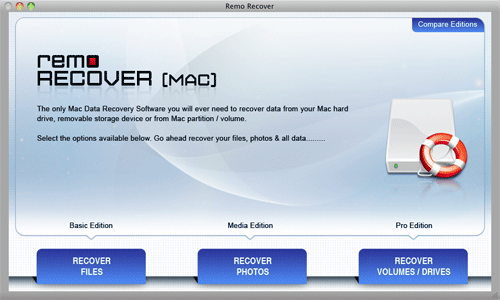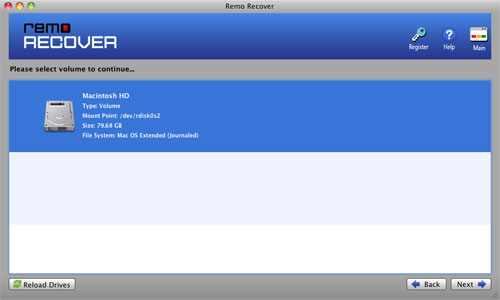Western Digital Mavericks Data Recovery
- The incredible tool that retrieves data from WD data on Mavericks machines
- Corrupt, broken, formatted or inacessible data from Western Digital drives
- Scans the drive and extracts data with ultimate ease
- Supports all disk file systems
Western Digital is one of the most reliable and extended storage devices. This device can hold a wide range of files and folders in a very well-protected way. Files that are present upon it can be accessed whenever required by the users on Mac system. Sometimes these well-treasured files get deleted or lost due to some reason. If you have got into such a situation, then simply make use of this software to perform Western Digital Mavericks Data Recovery with utmost ease.
Some of the reasons for data loss scenarios that can happen upon any Western Digital hard drive are detailed as follows:
Improper Ejection: Western Digital is a portable storage device which needs to be removed from the attached system using the recommended method. If such a procedure isn’t applied properly then it can result in corruption of the file system, thereby leading to a severe data loss.
Accidental Formatting: Formatting allows users to wipe out the folders and files from the respective drive. But, if this kind of sophisticated command is applied in an inappropriate way then it results in a severe data loss. So, if you have applied it and don’t know what to do then simply make use of this software as early as possible.
Unintentional Deletion: Deletion of some of the important files can happen while users are clearing some of the useless files from a Western Digital hard. As deletion happen only file detail is flushed off from the file system, therefore, if you wish to perform Western Digital Mavericks data recovery make use of this application. Click on this link to know how to recover deleted items from the Western Digital: https://www.westerndigitalrecovery.net/deleted-files-from-hard-drive.html
Other Reasons: Any of you can face different other reasons that cause data loss from a Western Digital hard drive such as deletion via a third-party software, corruption of the drive due to file system conversion and others. These problems lead to the need for Western Digital Mavericks data recovery.
Each of these problems can be resolved by the use of the Western Digital Recovery software. However, to make sure that data recovery is done in a most appropriate way, there are certain things to be taken care of, such as:
- Don’t format or reformat after data loss
- Stop making use of the drive so that no overwriting of the pre-saved data may happen
This Western Digital Recovery easily performs Western Digital Mavericks data recovery on the different file systems such as HFS+, HFSX, FAT16, FAT32, and exFAT. This application performs a Western Digital disk recovery with the same ease on Windows system. It scans the respective drive and presents the files in the desired format. Once the scanning of the file is completed on Western Digital drive users can preview the files before allocating them the required hard disk drive memory space. Western Digital Mavericks data recovery can be done by sorting files in four different categories that are file name, size of the file, file signature and date of creation. A few of the file formats that can be rescued by this software are AVI, MP3, MP4, MOV, DIVX, MKV, WMV, PNG, JPEG, GIF, PST, DOC, DOCX, PDF, EXE, etc. To specifically how to recover files from Western Digital Scorpio Black, WD Red, WD Purple drives click on this link: https://www.westerndigitalrecovery.net/scorpio-black.html
Steps to perform Western Digital Data Recovery on Mac Mavericks
Step 1: Download and install this rescue software on your PC and then launch the utility to open its home wizard as shown in below figure.

Figure A: Home Wizard
Step 2: Select WD hard drive from the list of logical drives as shown in below figure.

Figure B: Select WD Hard Drive
Step 3: You can see the list of recovered files as shown in below figure.

Figure C: List of Recovered Files